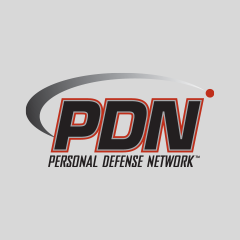
High Compressed Ready Position
Personal Defense Network EditorsMany handgun ready positions exist. Rob Pincus strongly prefers the high compressed ready position. The gun is held in front of the chest above the area the gun moves to when it comes up out of the holster. The gun is also close to the chest, and the shooter’s elbows are at his side so that he is able to punch the gun directly out into his shooting position.
Why High Compressed Ready?
Rob believes there are many advantages to using this position. First and foremost, it is consistent with the presentation from the holster. This means all handgun training reps from the ready position are consistent with the worst-case scenario of responding to a threat (such as the flinch and the startle response) and needing to come through the ready position when the shooter engages into the shooting position.
Other Advantages
In the high compressed ready position, the shooter can do reloads and malfunction clearance drills. High compressed ready is a strong position: it’s difficult for an attacker to take the handgun away when it's in this position, due to the gun’s close proximity to the body, and easy for the shooter to assess his surroundings. The shooter can also easily move through environments that might be close, such as a crowd or around corners in a building. By simply pointing the gun down while maintaining the position, he won’t cover any bystanders with the muzzle.
When conducting firearms training or during an incident, the shooter can hold the gun one-handed or two-handed in high compressed ready, and it doesn’t cause much fatigue like an extended position does if the shooter has to stand at the ready for a long period of time.
High compressed ready is an important position to train from and to understand when developing intuitive shooting skills.
